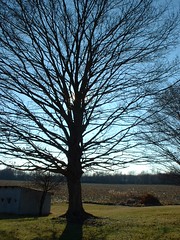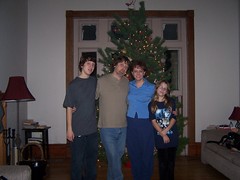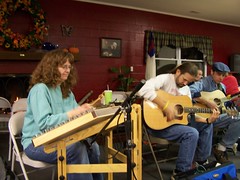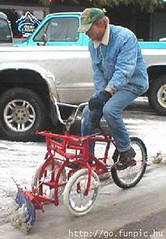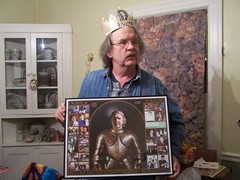For inspirational, well-wrought quotes on natural themes, it's hard to beat John Muir. He writes of nature and human nature with a poetic flourish.
I offer a few Muir quotes today, just because.
******
I used to envy the father of our race, dwelling as he did in contact with the newmade fields and plants of Eden; but I do so no more, because I have discovered that I also live in 'creation's dawn.' The morning stars still sing together, and the world, not yet half made, becomes more beautiful every day.
******
We find in the fields of Nature no place that is blank or barren; every spot on land or sea is covered with harvests, and these harvests are always ripe and ready to be gathered and no toiler is ever underpaid.
******
Death is a kind nurse saying, "Come, children, to bed and get up in the morning;" a gracious mother calling her children home.
******
Nature is ever at work building and pulling down, creating and destroying, keeping everything whirling and flowing, allowing no rest but in rhythmical motion, chasing everything in endless song out of one beautiful form into another.
******
There are no harsh, hard dividing lines in Nature. Glaciers blend with the snow and snow blends with the thin invisible breath of the sky. So there are no stiff, frigid, stony partition walls betwixt us and heaven. There are blendings as immeasurable and as artraccable as the edges of melting clouds.
******
The evening flames with purple and gold...the mighty host of trees baptized in the purple flood stand hushed and thoughtful, awaiting the sun's blessing and farewell.
******
...Unfortunately, MAN is in the woods, and waste and pure destruction are making rapid headway. If the importance of forests were at all understood, even from an economic standpoint, their preservation would call forth the most watchful attention of government.
******
In God's wildness lies the hope of the world the great fresh unblighted, unredeemed wilderness. The galling harness of civilization drops off, and the wounds heal ere we are aware.
******
You hear strange whisperings among the tree tops, as if the giants were taking counsel together. One after another, nodding and swaying, calling and replying, spreads the news, until all with one accord break forth into glorious song, welcoming the first grand snowstorm of the year...
******
To ask me whether I could endure to live without friends is absurd. It is easy enough to live out of material sight of friends, but to live without human love is impossible. Quench love, and what is left of a man's life but the folding of a few jointed bones and square inches of flesh? Who would call that life?
******
Go, and read some more:
http://www.nps.gov/archive/jomu/quotes.htm
Or read some of his books - that'd be a great resolution for the new year.
Friday, December 28, 2007
Monday, December 24, 2007
Merry Christmas
From the second chapter of Matthew, we are reminded that the birth of Christ was not celebrated by all...
When Jesus was born in Bethlehem of Judea, in the days of King Herod, behold, magi from the east arrived in Jerusalem, saying, "Where is the newborn king of the Jews? We saw his star at its rising and have come to do him homage."
When King Herod heard this, he was greatly troubled, and all Jerusalem with him.
Assembling all the chief priests and the scribes of the people, he inquired of them where the Messiah was to be born.
They said to him, "In Bethlehem of Judea, for thus it has been written through the prophet: 'And you, Bethlehem, land of Judah, are by no means least among the rulers of Judah; since from you shall come a ruler, who is to shepherd my people Israel.'"
Then Herod called the magi secretly and ascertained from them the time of the star's appearance.
He sent them to Bethlehem and said, "Go and search diligently for the child. When you have found him, bring me word, that I too may go and do him homage." After their audience with the king they set out. And behold, the star that they had seen at its rising preceded them, until it came and stopped over the place where the child was.
They were overjoyed at seeing the star, and on entering the house they saw the child with Mary his mother. They prostrated themselves and did him homage. Then they opened their treasures and offered him gifts of gold, frankincense, and myrrh.
And having been warned in a dream not to return to Herod, they departed for their country by another way.
When they had departed, behold, the angel of the Lord appeared to Joseph in a dream and said, "Rise, take the child and his mother, flee to Egypt, and stay there until I tell you. Herod is going to search for the child to destroy him."
Joseph rose and took the child and his mother by night and departed for Egypt. He stayed there until the death of Herod, that what the Lord had said through the prophet might be fulfilled, "Out of Egypt I called my son."
When Herod realized that he had been deceived by the magi, he became furious. He ordered the massacre of all the boys in Bethlehem and its vicinity two years old and under, in accordance with the time he had ascertained from the magi.
Then was fulfilled what had been said through Jeremiah the prophet:
"A voice was heard in Ramah, sobbing and loud lamentation; Rachel weeping for her children, and she would not be consoled, since they were no more."
When Herod had died, behold, the angel of the Lord appeared in a dream to Joseph in Egypt and said, "Rise, take the child and his mother and go to the land of Israel, for those who sought the child's life are dead."
He rose, took the child and his mother, and went to the land of Israel.
But when he heard that Archelaus was ruling over Judea in place of his father Herod, he was afraid to go back there. And because he had been warned in a dream, he departed for the region of Galilee.
He went and dwelt in a town called Nazareth, so that what had been spoken through the prophets might be fulfilled, "He shall be called a Nazarene."
======
Scary, powerful, wonderful times, those were.
These are. Merry Christmas and a courageous new year.
When Jesus was born in Bethlehem of Judea, in the days of King Herod, behold, magi from the east arrived in Jerusalem, saying, "Where is the newborn king of the Jews? We saw his star at its rising and have come to do him homage."
When King Herod heard this, he was greatly troubled, and all Jerusalem with him.
Assembling all the chief priests and the scribes of the people, he inquired of them where the Messiah was to be born.
They said to him, "In Bethlehem of Judea, for thus it has been written through the prophet: 'And you, Bethlehem, land of Judah, are by no means least among the rulers of Judah; since from you shall come a ruler, who is to shepherd my people Israel.'"
Then Herod called the magi secretly and ascertained from them the time of the star's appearance.
He sent them to Bethlehem and said, "Go and search diligently for the child. When you have found him, bring me word, that I too may go and do him homage." After their audience with the king they set out. And behold, the star that they had seen at its rising preceded them, until it came and stopped over the place where the child was.
They were overjoyed at seeing the star, and on entering the house they saw the child with Mary his mother. They prostrated themselves and did him homage. Then they opened their treasures and offered him gifts of gold, frankincense, and myrrh.
And having been warned in a dream not to return to Herod, they departed for their country by another way.
When they had departed, behold, the angel of the Lord appeared to Joseph in a dream and said, "Rise, take the child and his mother, flee to Egypt, and stay there until I tell you. Herod is going to search for the child to destroy him."
Joseph rose and took the child and his mother by night and departed for Egypt. He stayed there until the death of Herod, that what the Lord had said through the prophet might be fulfilled, "Out of Egypt I called my son."
When Herod realized that he had been deceived by the magi, he became furious. He ordered the massacre of all the boys in Bethlehem and its vicinity two years old and under, in accordance with the time he had ascertained from the magi.
Then was fulfilled what had been said through Jeremiah the prophet:
"A voice was heard in Ramah, sobbing and loud lamentation; Rachel weeping for her children, and she would not be consoled, since they were no more."
When Herod had died, behold, the angel of the Lord appeared in a dream to Joseph in Egypt and said, "Rise, take the child and his mother and go to the land of Israel, for those who sought the child's life are dead."
He rose, took the child and his mother, and went to the land of Israel.
But when he heard that Archelaus was ruling over Judea in place of his father Herod, he was afraid to go back there. And because he had been warned in a dream, he departed for the region of Galilee.
He went and dwelt in a town called Nazareth, so that what had been spoken through the prophets might be fulfilled, "He shall be called a Nazarene."
======
Scary, powerful, wonderful times, those were.
These are. Merry Christmas and a courageous new year.
Wednesday, December 19, 2007
Down to Earth
The video link above is to a slide show I created using photos of my 2003 trip to Nicaragua (many of the photos from my friend, Sascha, who went to Nicaragua along with me) along with a snippet from a song, I Cannot Sleep.
I Cannot Sleep is a song available on a new CD by my friends Paul and Kate. Paul and Kate are the folk duo, Down to Earth and this song is from their debut album, Fiercer Love. I highly encourage anyone who likes this snippet - or folk music in general - to check out their website, fiercerlove.com.
Paul and Kate are a husband/wife team - Louisville musicians who've been singing together for ~15 years (and who we enjoy hearing from regularly at our church). They are a folk group playing the best of music, accompanying themselves on guitar, hammered dulcimer, congas, harmonica and an occasional bowed psaltery and maybe even a nose whistle?!
The album, Fiercer Love features several of Paul and Kate's own beautiful songs - from Kate's ethereal version of Mary's Magnificat to Paul's compelling page of family history retold in Old Reliable, among others.
The album also features songs by Bruce Springsteen (a haunting version of The Ghost of Tom Joad) and Garnet Rogers, among others. Each of the songs on the album speaks in one way or another about social justice, of good news for the poor, liberation for the captive and does so with perfect harmonies and fantastic instrumentation.
In addition to Paul and Kate's music-smithing, the album features some extra musical work from well-known local musicians Tim Krekel (who formerly played with Jimmy Buffett) and Brigid Kaelin, an up and coming singer-songwriter herself (and my daughter's piano teacher!).
I highly recommend the album - if you like acoustic music with a conscience, you should check them out at fiercerlove.com.
I Cannot Sleep is a song available on a new CD by my friends Paul and Kate. Paul and Kate are the folk duo, Down to Earth and this song is from their debut album, Fiercer Love. I highly encourage anyone who likes this snippet - or folk music in general - to check out their website, fiercerlove.com.
Paul and Kate are a husband/wife team - Louisville musicians who've been singing together for ~15 years (and who we enjoy hearing from regularly at our church). They are a folk group playing the best of music, accompanying themselves on guitar, hammered dulcimer, congas, harmonica and an occasional bowed psaltery and maybe even a nose whistle?!
The album, Fiercer Love features several of Paul and Kate's own beautiful songs - from Kate's ethereal version of Mary's Magnificat to Paul's compelling page of family history retold in Old Reliable, among others.
The album also features songs by Bruce Springsteen (a haunting version of The Ghost of Tom Joad) and Garnet Rogers, among others. Each of the songs on the album speaks in one way or another about social justice, of good news for the poor, liberation for the captive and does so with perfect harmonies and fantastic instrumentation.
In addition to Paul and Kate's music-smithing, the album features some extra musical work from well-known local musicians Tim Krekel (who formerly played with Jimmy Buffett) and Brigid Kaelin, an up and coming singer-songwriter herself (and my daughter's piano teacher!).
I highly recommend the album - if you like acoustic music with a conscience, you should check them out at fiercerlove.com.
Friday, December 14, 2007
Winter Bicycling
I'm posting this one more for the folk in the midwest and northeast, as we're not experiencing any winter weather here in Louisville just yet.
In fact, here in Louisville, it's pretty easy to get around on foot or on bike year round. We have VERY few icy road days. So, I'm posting a nice little excerpt from a fella associated with the icebike.org group. The author lives in Alaska and I'd reckon knows a bit about cycling in winter weather.
After 6 years of daily commuting to work on a bicycle year round I have to admit it is far more practical than even I would have thought. At first I was just doing it for the exercise. But then it became obvious to me that I was having an easier time getting around than most of the drivers on days when it was really slippery.
Further, drivers always arrive at work complaining how cold it was. I would arrive warm and awake.
Drivers would rush out of work early to start their cars so they could ride home in a warm vehicle. They would then let them idle for anywhere from 10 minutes to half an hour. I never idled my bike. It was always warm enough for the ride home.
Drivers would get stuck in snow. (I used to stop and help, now I just ride by and wave).
Most of all it is just plain enjoyable. The air is fresh and clear, it is usually dryer in the dead of winter which keeps your bike cleaner. Riding in falling snow is quiet and peaceful. Making the first track on a road in the morning is fun.
=====
So there you have it. Dress appropriately, be safe and have a healthy winter. However you get around.
In fact, here in Louisville, it's pretty easy to get around on foot or on bike year round. We have VERY few icy road days. So, I'm posting a nice little excerpt from a fella associated with the icebike.org group. The author lives in Alaska and I'd reckon knows a bit about cycling in winter weather.
After 6 years of daily commuting to work on a bicycle year round I have to admit it is far more practical than even I would have thought. At first I was just doing it for the exercise. But then it became obvious to me that I was having an easier time getting around than most of the drivers on days when it was really slippery.
Further, drivers always arrive at work complaining how cold it was. I would arrive warm and awake.
Drivers would rush out of work early to start their cars so they could ride home in a warm vehicle. They would then let them idle for anywhere from 10 minutes to half an hour. I never idled my bike. It was always warm enough for the ride home.
Drivers would get stuck in snow. (I used to stop and help, now I just ride by and wave).
Most of all it is just plain enjoyable. The air is fresh and clear, it is usually dryer in the dead of winter which keeps your bike cleaner. Riding in falling snow is quiet and peaceful. Making the first track on a road in the morning is fun.
=====
So there you have it. Dress appropriately, be safe and have a healthy winter. However you get around.
Monday, December 10, 2007
The Bible and Economics
I haven't done two Bible and Economics postings in a row, but since this was the passage read and sung in church yesterday, I thought the timing was right.
As is often the case with these money and morality passages, I never noticed the economic implications growing up (it never being pointed out). And yet, there's a pretty strong message to be had here. Scary, even.
From Luke 1 - Mary's Magnificat - the song she sang when she discovered she was pregnant with Jesus:
And Mary said: "My soul glorifies the Lord and my spirit rejoices in God my Savior, for the Lord has been mindful of the humble state of this servant.
From now on all generations will call me blessed, for the Mighty One has done great things for me--holy is God's name. God's mercy extends to those who fear the Lord, from generation to generation.
God has performed mighty deeds with God's arm; The Lord has scattered those who are proud in their inmost thoughts.
God has brought down rulers from their thrones but has lifted up the humble.
God has filled the hungry with good things but has sent the rich away empty.
God has helped God's servant Israel, remembering to be merciful to Abraham and his descendants for ever, even as God said to our parents."
As my pastor said in her sermon yesterday, if most of us deal with the "rich" part of this passage at all, we tend to spiritualize it. "Oh, Mary didn't REALLY mean that God sends away the rich empty - she must be speaking of those who put their faith in riches. Or perhaps those who aren't humble. That's not a line to take literally as it seems..."
And, why wouldn't we think thusly? We are the rich, after all. Do we really think God sends us away merely because we are rich, as Mary directly says here?
For my part, I will say it again: For the person swimming for their life, letting go of that which weighs them down is not necessarily bad news... Being made empty - so that we might be filled again - why, that's Good News.
You think?
As is often the case with these money and morality passages, I never noticed the economic implications growing up (it never being pointed out). And yet, there's a pretty strong message to be had here. Scary, even.
From Luke 1 - Mary's Magnificat - the song she sang when she discovered she was pregnant with Jesus:
And Mary said: "My soul glorifies the Lord and my spirit rejoices in God my Savior, for the Lord has been mindful of the humble state of this servant.
From now on all generations will call me blessed, for the Mighty One has done great things for me--holy is God's name. God's mercy extends to those who fear the Lord, from generation to generation.
God has performed mighty deeds with God's arm; The Lord has scattered those who are proud in their inmost thoughts.
God has brought down rulers from their thrones but has lifted up the humble.
God has filled the hungry with good things but has sent the rich away empty.
God has helped God's servant Israel, remembering to be merciful to Abraham and his descendants for ever, even as God said to our parents."
As my pastor said in her sermon yesterday, if most of us deal with the "rich" part of this passage at all, we tend to spiritualize it. "Oh, Mary didn't REALLY mean that God sends away the rich empty - she must be speaking of those who put their faith in riches. Or perhaps those who aren't humble. That's not a line to take literally as it seems..."
And, why wouldn't we think thusly? We are the rich, after all. Do we really think God sends us away merely because we are rich, as Mary directly says here?
For my part, I will say it again: For the person swimming for their life, letting go of that which weighs them down is not necessarily bad news... Being made empty - so that we might be filled again - why, that's Good News.
You think?
Wednesday, December 5, 2007
The Bible and Economics
Another of the ongoing series (here, here, here, here, here and here) where we look at biblical passages that touch on economic issues, matters of poverty and wealth.
Today, we’ll look at a story told to King David by his advisor, the prophet, Nathan, in 2 Samuel.
This was just after David had treacherously killed a faithful leader (Uriah) in his army so that David might have Uriah’s wife, Bathsheba – adding her to his already vast harem of wives and concubines (sorta makes you wonder exactly when it was that David was a man after God’s own heart, as we’re told).
In 2 Samuel 12, we see Nathan approached the haughty and mighty king to confront him, saying:
"Judge this case for me! In a certain town there were two men, one rich, the other poor.
The rich man had flocks and herds in great numbers.
But the poor man had nothing at all except one little ewe lamb that he had bought. He nourished her, and she grew up with him and his children. She shared the little food he had and drank from his cup and slept in his bosom. She was like a daughter to him.
Now, the rich man received a visitor, but he would not take from his own flocks and herds to prepare a meal for the wayfarer who had come to him. Instead he took the poor man's ewe lamb and made a meal of it for his visitor."
In Nathan’s story, King David was clueless and outraged.
"Then David's anger was greatly kindled against the man; and he said to Nathan, "As The Lord lives, the man who has done this deserves to die; and he shall restore the lamb fourfold, because he did this thing, and because he had no pity."
Nathan’s brave response (to a king who could have him killed)?
“You are that man.”
Now, I’ll admit that this story seems marginally related to wealth and poverty, since the story being told is a morality story setting up David to see his own sin. But I think it is just another example in the Bible associating great sin with great wealth and power.
David as a poor young man had been faithful to God, had learned to depend upon God. But as David became the horribly wealthy and powerful KING DAVID famed in song and story, his center of faith and morality shifted. He was able to justify all manner of naughtiness to support his licentious ways.
And that is yet another reason why I think that the consistent biblical lessons we find about wealth and poverty is not that money = bad, but rather money = a trap. For the love of money is the root of all sorts of evil.
I think the only problem with calling wealth – especially excessive wealth – “merely” a trap is that it’s all too easy to agree. “Yep. It sure is. And most folk out there ought to be careful that they aren’t consumed by consumerism. Fortunately, I’m on my guard, so a small smackerel of consumption on my part is not a bad thing. But you ought to be careful…”
A Very Simple Christmas to us all?
Today, we’ll look at a story told to King David by his advisor, the prophet, Nathan, in 2 Samuel.
This was just after David had treacherously killed a faithful leader (Uriah) in his army so that David might have Uriah’s wife, Bathsheba – adding her to his already vast harem of wives and concubines (sorta makes you wonder exactly when it was that David was a man after God’s own heart, as we’re told).
In 2 Samuel 12, we see Nathan approached the haughty and mighty king to confront him, saying:
"Judge this case for me! In a certain town there were two men, one rich, the other poor.
The rich man had flocks and herds in great numbers.
But the poor man had nothing at all except one little ewe lamb that he had bought. He nourished her, and she grew up with him and his children. She shared the little food he had and drank from his cup and slept in his bosom. She was like a daughter to him.
Now, the rich man received a visitor, but he would not take from his own flocks and herds to prepare a meal for the wayfarer who had come to him. Instead he took the poor man's ewe lamb and made a meal of it for his visitor."
In Nathan’s story, King David was clueless and outraged.
"Then David's anger was greatly kindled against the man; and he said to Nathan, "As The Lord lives, the man who has done this deserves to die; and he shall restore the lamb fourfold, because he did this thing, and because he had no pity."
Nathan’s brave response (to a king who could have him killed)?
“You are that man.”
Now, I’ll admit that this story seems marginally related to wealth and poverty, since the story being told is a morality story setting up David to see his own sin. But I think it is just another example in the Bible associating great sin with great wealth and power.
David as a poor young man had been faithful to God, had learned to depend upon God. But as David became the horribly wealthy and powerful KING DAVID famed in song and story, his center of faith and morality shifted. He was able to justify all manner of naughtiness to support his licentious ways.
And that is yet another reason why I think that the consistent biblical lessons we find about wealth and poverty is not that money = bad, but rather money = a trap. For the love of money is the root of all sorts of evil.
I think the only problem with calling wealth – especially excessive wealth – “merely” a trap is that it’s all too easy to agree. “Yep. It sure is. And most folk out there ought to be careful that they aren’t consumed by consumerism. Fortunately, I’m on my guard, so a small smackerel of consumption on my part is not a bad thing. But you ought to be careful…”
A Very Simple Christmas to us all?
Subscribe to:
Comments (Atom)
